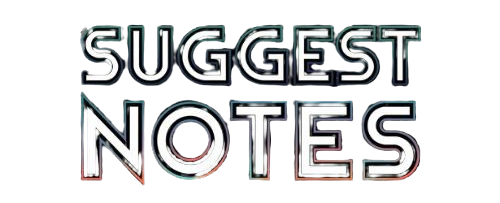Gratitude is a powerful tool that can strengthen connections in both personal and professional realms. Instead of relying solely on the familiar phrase “Thank You for Letting Me Know,” why not explore a variety of expressions that can enhance your communication?
Not only do these alternatives enrich your conversations, but they also add a personal touch that makes your appreciation feel heartfelt. Embracing different phrases allows you to convey sincerity, making your interactions more engaging and memorable.
In this article, we will delve into 15 Other Ways to Say “Thank You for Letting Me Know,” complete with examples for each. These alternatives are perfect for everyday interactions, emails, and formal communications, ensuring that your gratitude comes across as genuine and timely.
So whether it’s Thankful Tuesday Blessings or a simple work update, you’ll find expressions that resonate and strengthen your relationships. Let’s get started on enhancing your appreciation skills.
What to Say Instead of “Thank You for Letting Me Know”

When acknowledging information, using a variety of phrases can make your communication more effective. It avoids sounding repetitive and shows that you are actively engaged.
Here are 10 different ways to say “Thank You for Letting Me Know” that can be used in different scenarios.
- Thanks for the Update
- I Appreciate the Heads-Up
- Thanks for the Information
- I’m Grateful for the Notice
- Thank You for Keeping Me Informed
- Appreciate Your Transparency
- Thanks for Filling Me In
- Good to Know, Thanks
- Thanks for the Notification
- I Value Your Communication
- I Appreciate Your Prompt Response
- Thanks for Sharing That Insight
- Your Feedback is Valuable, Thank You
- I Appreciate Your Help with This Matter
- Thank You for Your Consideration
1. Thanks for the Update
Using “Thanks for the update” is a simple yet polite way to acknowledge new information. This expression is suitable for professional settings where updates about projects, schedules, or policies are frequently shared.
For instance:
If you receive an email about a change in project deadlines, you could reply, “Thanks for the update; I’ll adjust my schedule accordingly.”
- This response shows that you acknowledge the new information and are willing to act on it, ensuring no miscommunication.
- Using “Thanks for the update” can help you maintain a professional tone while still sounding approachable and appreciative.
2. I Appreciate the Heads-Up
When someone gives you information that helps you prepare for something ahead of time, “I appreciate the heads-up” can be an effective way to show your gratitude. This phrase is ideal for instances when you receive advance notice or a helpful reminder.
For example:
If a colleague informs you about an upcoming system maintenance, you can reply, “I appreciate the heads-up; I’ll make sure to save my work before then.”
- This phrase conveys that you value the early notification, which can help you make better preparations or decisions.
- Using it regularly in professional settings can build a culture of proactive communication and appreciation.
3. Thanks for the Information
When you receive detailed instructions or important information, “Thanks for the information” is a polite and straightforward response. It works well for formal communications, such as emails where someone has taken the time to provide you with valuable details.
For example:
After getting instructions on a new process, you could respond, “Thanks for the information. I’ll make sure to follow these steps accordingly.”
- This phrase is helpful for making sure the person knows their effort to share detailed information is appreciated.
- Using “Thanks for the information” reinforces that you understand and plan to use the shared details in your actions.
4. I’m Grateful for the Notice
When the information shared is significant or time-sensitive, expressing deeper gratitude with “I’m grateful for the notice” is more appropriate. It shows that the update will have a meaningful impact on your plans or decisions.
Imagine being informed of a policy change that affects your work. A response such as “I’m grateful for the notice; this gives me time to adjust accordingly” demonstrates that you value the effort to keep you informed.
- This phrase shows an appreciation for timely communication, which can help prevent last-minute surprises or setbacks.
- It adds a touch of sincerity, making it clear that you don’t take the information for granted.
5. Thank You for Keeping Me Informed
In cases where regular updates are essential, saying “Thank You for Keeping Me Informed” reflects your appreciation for continuous communication. This phrase is ideal when you need to acknowledge ongoing updates over time.
For instance:
If a colleague sends regular project updates, you could reply, “Thank You for Keeping Me Informed; these updates help keep me on track.”
- Using this phrase consistently helps foster a habit of frequent communication in teams or collaborative environments.
- It emphasizes that you recognize the effort put into keeping you up to date, promoting a culture of transparency.
6. Appreciate Your Transparency
Honesty is crucial in many professional relationships. When someone shares straightforward or even difficult information, you can express your gratitude with “Appreciate your transparency.” This phrase is suitable when discussing challenges, setbacks, or important feedback.
For example:
If a manager explains the reasons behind a delay, you could respond, “I appreciate your transparency; it helps us understand the situation better.”
- It conveys that you value honesty, even if the information is not entirely positive, helping to build trust.
- Using this phrase encourages a culture of open and direct communication in your workplace or interactions.
7. Thanks for Filling Me In
When you need to catch up on events or topics, saying “Thanks for filling me in” is a friendly way to acknowledge that someone took the time to bring you up to speed. It’s suitable for informal settings and situations where you’ve missed out on some details.
For instance:
If you were unable to attend a meeting and a coworker catches you up, you could say, “Thanks for filling me in; now I know what happened.”
- This response helps you maintain involvement in ongoing discussions, even when you missed earlier conversations.
- It shows that you value being kept in the loop and appreciate the effort made to update you.
8. Good to Know, Thanks
When the information shared is useful but does not require immediate action, “Good to know, thanks” is a quick and conversational way to acknowledge the update. It’s appropriate for casual interactions where the information adds value but isn’t urgent.
For example:
If a colleague mentions that a new break room feature is available, you could say, “Good to know, thanks. I’ll check it out when I have time.”
- This phrase allows you to acknowledge useful information in a light-hearted way without making it sound too formal.
- It can help keep the tone of conversations friendly, especially in non-critical situations.
9. Thanks for the Notification
When receiving formal notices or announcements, “Thanks for the notification” serves as a proper acknowledgement. This phrase is useful in official communications where confirming receipt of the information is necessary.
For instance:
If you receive an email about scheduled maintenance, replying with “Thanks for the notification; I’ll plan accordingly” confirms that you received and understood the update.
- It reinforces that you’ve taken note of the notice, showing attentiveness in your communication.
- Using “Thanks for the notification” helps maintain a professional tone in formal settings.
10. I Value Your Communication
Showing that you value continuous communication can help build strong working relationships. By saying “I value your communication,” you express appreciation for someone’s effort to keep you updated.
For example:
If a team member regularly shares progress reports, you could reply, “I value your communication; these updates are helping keep the project moving forward.”
- This phrase emphasizes the importance of regular updates, encouraging others to continue providing valuable information.
- It helps create an environment where communication is recognized as an essential element of teamwork and success.
11. I Appreciate Your Prompt Response
When someone replies quickly to your inquiry or concern, saying “I Appreciate Your Prompt Response” can convey your gratitude effectively. This phrase is particularly useful in time-sensitive situations where quick feedback is valuable.
For instance:
If you ask a colleague for clarification on a project detail and they reply swiftly, you might say, “I appreciate your prompt response; it helps me keep things on track.”
- This phrase not only thanks the person for their quick reply but also reinforces the importance of timely communication in collaborative environments.
- Using it regularly can encourage others to respond promptly, fostering a culture of efficiency and responsiveness.
12. Thanks for Sharing That Insight
When someone provides valuable insights or advice, using “Thanks for Sharing That Insight” recognizes their contribution. This phrase is particularly effective when discussing ideas, strategies, or feedback in professional settings.
For example:
If a team member shares an innovative approach during a brainstorming session, you could respond, “Thanks for sharing that insight; it could really enhance our project.”
- This expression shows that you value others’ opinions and ideas, promoting a collaborative atmosphere where everyone feels their input is appreciated.
- Acknowledging insights helps to encourage further sharing of ideas and reinforces a culture of creativity.
Related Guide:
15 Other Ways to Say “Welcome Home” (With Examples)
13. Your Feedback is Valuable, Thank You

Expressing appreciation for feedback can be crucial in professional development. Saying “Your Feedback is Valuable, Thank You” acknowledges the effort someone took to provide constructive criticism or guidance.
For instance:
After receiving input on a presentation, you might say, “Your feedback is valuable, thank you; it will help me improve my delivery.”
- This phrase emphasizes that you take feedback seriously, making others feel that their contributions matter.
- It encourages a culture of open communication where individuals feel comfortable giving and receiving feedback.
14. I Appreciate Your Help with This Matter
When someone assists you in resolving an issue, using “I Appreciate Your Help with This Matter” can show your gratitude. This phrase is especially fitting in situations where someone goes out of their way to offer support.
For example:
If a colleague helps you troubleshoot a problem, you could say, “I appreciate your help with this matter; it saved me a lot of time.”
- This acknowledgment reinforces teamwork and collaboration, reminding individuals that supporting each other is essential.
- It encourages others to continue providing help, fostering a more supportive work environment.
15. Thank You for Your Consideration

In situations where someone thoughtfully weighs their response or action, saying “Thank You for Your Consideration” conveys your appreciation for their careful approach.
This phrase works well in discussions where someone has taken the time to think things through before replying.
For example:
If a manager takes time to review a proposal before providing feedback, you could say, “Thank you for your consideration; I look forward to your thoughts.”
- This expression shows respect for the other person’s thoughtfulness, which can help build stronger professional relationships.
- Using it highlights the importance of consideration in communication, promoting a thoughtful exchange of ideas.
FAQ’s
Why is saying “Thank You for Letting Me Know” important in communication?
Using the phrase “Thank You for Letting Me Know” shows appreciation and respect for the information shared. It fosters positive relationships by acknowledging the effort someone took to inform you.
Are there alternatives to “Thank You for Letting Me Know”?
Yes, there are many alternatives such as “Thanks for the update” or “I appreciate the heads-up.” Using variations allows for a more engaging communication style beyond “Thank You for Letting Me Know.”
When should I use “Thank You for Letting Me Know”?
You can use “Thank You for Letting Me Know” anytime someone provides you with important information. It is especially effective in professional settings, such as during meetings or email exchanges.
Can “Thank You for Letting Me Know” be used in formal emails?
Absolutely! The phrase “Thank You for Letting Me Know” is appropriate for formal emails and professional communications. It demonstrates your respect and gratitude towards the sender.
How can I improve my appreciation skills beyond “Thank You for Letting Me Know”?
Explore other expressions of gratitude like “I value your communication” or “Good to know, thanks.” Diversifying your responses enhances your communication skills while maintaining the essence of “Thank You for Letting Me Know.”
Conclusion
In conclusion, expressing gratitude is essential for nurturing strong relationships, whether in personal or professional settings. While “Thank You for Letting Me Know” is a widely accepted phrase, exploring alternative expressions can make your appreciation feel more genuine and tailored to the situation. By utilizing the various phrases we’ve discussed, you can enrich your communication and show sincere acknowledgment of the information shared with you.
Remember, saying “Thank You for Letting Me Know” is just the beginning. Each alternative expression not only conveys your gratitude but also enhances your interactions, making them more engaging and meaningful. So, the next time someone updates you, consider using one of the suggested phrases. By doing so, you not only thank them but also strengthen your connection, ensuring that your appreciation resonates. Ultimately, expressing gratitude, especially through phrases like “Thank You for Letting Me Know,” fosters a positive atmosphere that benefits everyone involved.

As a content writer with five years of experience, I focus on creating insightful and impactful website content that drives engagement and boosts search visibility. With a strong foundation in SEO and digital marketing, I excel at crafting compelling narratives that resonate with audiences and enhance brand storytelling. My passion for data-driven content creation allows me to deliver pieces that not only inform but also inspire action. Whether through blog posts, web copy, or informative articles, I strive to empower businesses to connect authentically with their customers.







